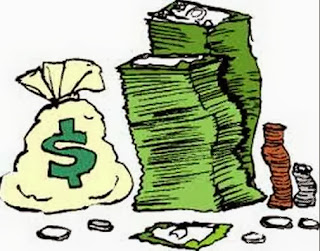If you are selling your home in a community
association, have you taken advantage of every possible tax break? Did you
include your percentage interest in the many improvements which your
association has made over the years?
Let's compare these two situation. You purchased
your single family house many years ago for $100,000. Over the years, you have
spent $50,000 in improvements and have the bills to document this. This
increases your basis for tax purposes to $150,000. You sell the property for
$650,000. Your profit (excluding for this discussion sales commissions and
settlement costs) is $500,000. Currently, under Federal law, if you are
married, file a joint income tax return, and have owned and lived in the house
for two out of the five years before sale, you can exclude up to $500,000 of
your gain; accordingly, in our example, you will not have to pay any capital
gains tax. If you are single - or file a separate tax return - you can exclude
up to $250,000 of your profit. The difference - $250,000 - will be taxed. Keep
in mind that as of this year, the capital gains tax rate has been increased,
and many homeowners will have to pay up to twenty percent of a portion of their
gain.
Now let us change this example to the sale of a
condominium, cooperative or a house in a homeowner association. Same facts: you
bought for $100,000 and sold for $650,000. Since the IRS will consider your
profit at $550,000, even if you are eligible for the up-to-$500,000 exclusion
of gain, you will have to pay capital gains tax on the $50,000 overage.
However, there are "secret" benefits
you probably overlooked - or were not even aware of: the improvements made by
your association including the qualifying energy efficiency improvements added
to the complex.
According to the Internal Revenue Service
"You need to know your basis in your home to determine any gain or loss
when you sell it. Your basis in your home is determined by how you got the
home.. (IRS Publication 523, entitled "Selling Your Home").
For example, if you bought or built the
property, your basis is what it cost you. If it was a gift, your basis is the
basis of the person giving you the property. And if you inherited the house,
your basis will most likely be the fair market value as of the date of death,
called the stepped-up basis.
Let us define some important terms:
· Gain.Also known as "profit," and the
gain on the sale of your home is the amount realized minus the adjusted basis
of the home you sold.
· Amount Realized.This is the selling price of
your old home minus your selling expenses. These would include real estate
commissions, advertising fees and legal fees incurred exclusively in the
selling process.
· Adjusted Basis.This is your basis in the
property increased or decreased by such expenses as settlement fees or the
costs of additions and improvements that have been made to your property.
Thus, as can be seen, in order to reduce your
gain, (and pay less tax), you want to legitimately increase both your basis and
your selling expenses.
Let 's go back to our example. We have agreed
that you have made a profit of $550,000 and will have to pay capital gains tax
on that additional $50,000.
Your community association has spent a
considerable amount of money improving the property. They have added a new roof
(or roofs), installed a swimming pool and tot lot, and made other similar
improvements.
You own a percentage interest in that
association. Generally, (other than for cooperatives) your percentage interest
will be found at the end of a legal document known as the
"Declaration." The total of everyone's percentage interest in the
association should be 100%. In a cooperative, your percentage interest should
be reflected on your share certificate or proprietary lease.
Let us assume that the association spent
$400,000 in improvements from the time you bought the property, and that your
percentage interest is 2.3. If you multiple your percentage interest times the
total improvements, you get a figure of $9,200.00, and this amount can -- and
should -- be added to your basis as "improvements."
It is surprising to me that many community
association owners are not aware of this tax benefit. In most community
associations, the records should be available as to the total expenditure for
improvements on a year to year basis. Please understand that maintenance and
repair items are not added to basis, but capital improvements -- generally
items which have a useful life of one year or more -- are indeed legitimate
items to be added to basis.
Basis is a concept on which most of us pay
little attention. However, as we get older, and become concerned with
conserving the majority of our assets, the concept of adjusted basis becomes
critical. Each dollar that can legitimately be added to the purchase price (the
adjusted basis) generates a savings to the individual community association
owner.
What should you do if you sold your property
within the last few years and were not aware of this special tax break? Obtain
a breakdown of capital improvements for the last three years from your
association's property manager. You may be able to file an amended return, but
you must discuss the logistics, the practicality and the legality of an amended
return with your own tax advisers. You don't necessarily want to red-flag the
IRS by filing that additional return.
Reprinted with the
permission of the author
Author: Benny L. Kass,
Realty Times








































